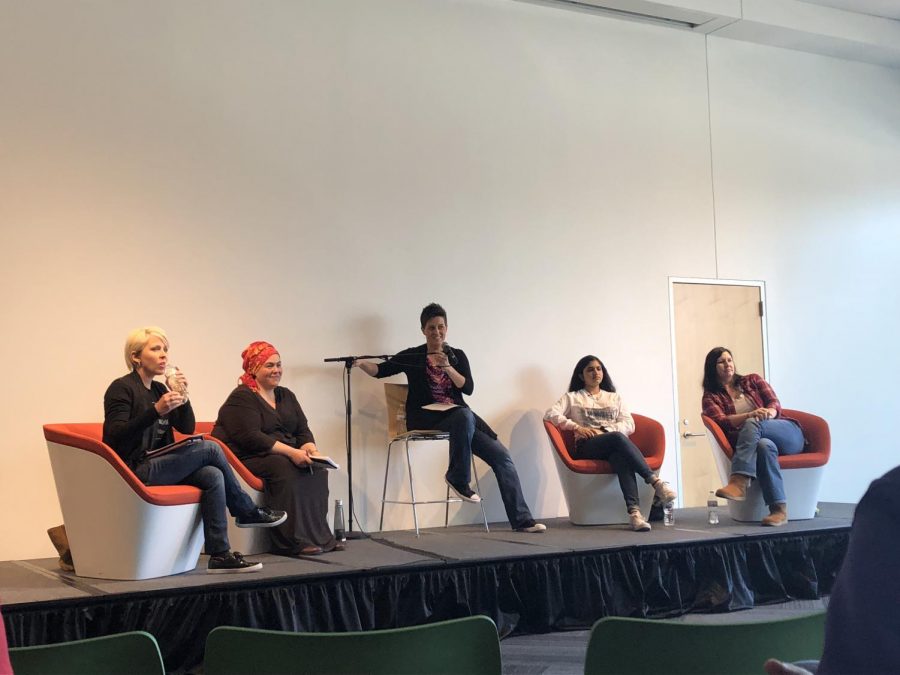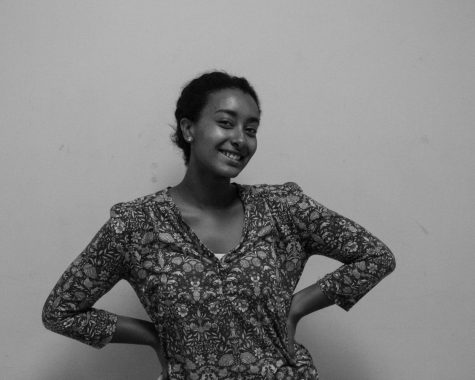The Role of A Woman
April 30, 2018
During the first weekend of April, Ames was met with a wave of feminism discussion. Coming all the way from Ohio, author Mindy McGinnis came to Ames High and the public library to discuss her book “The Female of the Species”, among other things relating to her experience with feminism in today’s world.
McGinnis talked to students about her novel at Ames High during Plus Period on Friday, April 6th. She cited her inspiration for the book’s dark plot from watching true crime shows throughout college. Writing the novel required lots of gory research, with McGinnis stating that anyone who didn’t know she was writing a novel would be appalled by her Google searches.
Released in 2004, “The Female of the Species” was McGinnis’ debut. The first draft was written in 1999, but was nothing like the book published today, McGinnis said. The current version alternates between three different viewpoints and explores rape culture, with main character Alex Craft seeking vengeance for her sister’s rape and murder.
McGinnis was joined by three other women for a panel at the Ames Public Library on April 7th as part one of a two part, “Talk Feminism” event hosted by the library. The other panelists included Kirsten Anderson, Jehan Faisal, and Ames High student and co-leader of Feminist club, Srishti Mathur.
The panelists discussed highlights from Roxane Gay’s book “Bad Feminist” as well as questions about intersectionality and privilege as they relate to feminism and the womens’ personal lives. The library was filled with listening ears of women, men and teenagers of all ages. There were audience questions following the discussion.
In McGinnis’ book, Alex’s rage and violent actions can be characterized as unfeminine and abhorrent. Discussed at the panel, as well as within other discussions in Hollywood, is the double standard that surfaces when confronting male and female characters displaying violent tendencies or being “unlikeable”. The main point of contention lies in unequal labelling: men being dubbed “anti-heros” while women are often portrayed as being evil.
“[T]here are a lot of different ways to be a woman,” senior Elena Andrews said. “It is simply ignorant to think that all women are “beautiful” and “subservient,” and Alex really shows that. Her character definitely shocked me when I first opened the book because her violent actions, that start on the very first page, were a lot to take in. And I think being shocked is okay, because it allowed me to understand Alex’s perspective on the world, even if its a lot more violent than my own. And that’s a big aspect of feminism—understanding the experiences and struggles of other women even if they are different from your own.”
Andrews is co-leader of Feminist Club at Ames High with Mathur. Her journey with Feminist Club started sophomore year, when she was encouraged by her peers and senior co-leader, Molly Bagnoll to join.
“Although my feminism was not fully developed at the time, joining the club was a no-brainer for me. Being a feminist was a part of who I was before I even fully knew what being a feminist was,” Andrews said.
Whatever role women occupy—literary or otherwise—they should not be forced to be apologetic. Sometimes female characters are strong, courageous, and of good moral standing; other times they are plain awful.
Any of the “let down” or “disappointment” that a impure female character brings is due only to expectation. Stealing from a discussion point at the public library panel, there needs to be a more prominent embrace of nuance in female characters—their diversity, imperfections and everything in between.
If you are interested in joining Feminist Club, it meets at 7:15 on Friday mornings in Mr. Mooney’s room.
























